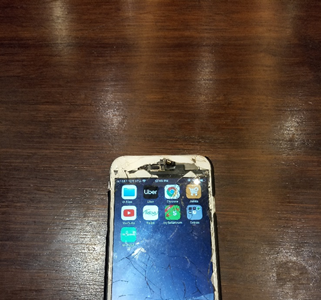By Fiona Ngarachu
COVID-19 has brought with it many challenges for researchers across the world. How do you collect data if you cannot go to the field, and in some cases, you cannot even leave your front door! For both social and physical scientists this presented unique challenges. I am a social scientist myself, and a qualitative researcher which means I had to change face to face interviews with policy makers that I had intended to do, to phone interviews. This had its ups and downs with the positives: being able to access a wider range of participants, organize for interviews out of hours and greater convenience and flexibility for the researcher. While the negatives: difficult phone and internet connections, not being able to gauge nonverbal expressions, participants wanting to get off the interview/phone quicker, hard to build trust/research relationship remotely. I will reflect in more detail about these in the rest of the post.
There is academic literature in conducting phone interviews in qualitative research, (Drabble et al, 2016; Block et al, 2012) but it does not greatly reference the African context, especially from a qualitative perspective as the literature is focused mostly on telephone surveys. (Hoogeveen et al, 2014). What I have found from my experience is that when it comes to African business culture, the importance of face-to-face meetings cannot be underestimated. People often ask for a meeting, even when it is an issue that can be resolved via email, or through a very quick phone call. This relationship building can mean the difference between a successful research interview or an unsuccessful one. Luckily in my case, I had already met some of my research participants face to face, but there are others that I had not. Moreover, the possibility of conducting interviews remotely gave me access to participants in locations such as Turkana that I had not initially planned on travelling to. I was able to mitigate for the lack of personal contact by suggesting video interviews where possible. Also, having more than one phone call also worked. The first phone call was a quick one to set the stage, introduce myself and start to build the relationship. The second call was the substantive interview. And sometimes there was even a third call to update participants on the progress and when the results would be available. I found this a good way to establish and keep the relationship.
This above-mentioned method only worked some of the time, however. In others, time was of the essence, and while they may have considered it rude to cut the interview short if it was face to face, they were perfectly happy to do so over the phone! In addition, while conducting the research over the phone, I had to be very aware of tone of voice and gaps and hesitations in responses as there were no other non-verbal cues that I could rely on. Overall, it was a good method for data collection given the circumstances but does not replace the advantages that are provided by in person interviewing.
References
Drabble, L., Trocki, K. F., Salcedo, B., Walker, P. C., & Korcha, R. A. (2016). Conducting qualitative interviews by telephone: Lessons learned from a study of alcohol use among sexual minority and heterosexual women. Qualitative social work : QSW : research and practice, 15(1), 118–133. https://doi.org/10.1177/1473325015585613
Block, E.S., Dame, N., States, U., &Erskine, L. (2021) Interviewing by Telephone: Specific Considerations, Opportunities , and Challenges. 428-445. https://doi.org/10.1177/160940691201100409
Johannes Hoogeveen, Kevin Croke, Andrew Dabalen, Gabriel Demombynes & Marcelo Giugale (2014) Collecting high frequency panel data in Africa using mobile phone interviews, Canadian Journal of Development Studies / Revue canadienne d’études du développement, 35:1, 186-207, DOI: 10.1080/02255189.2014.876390


